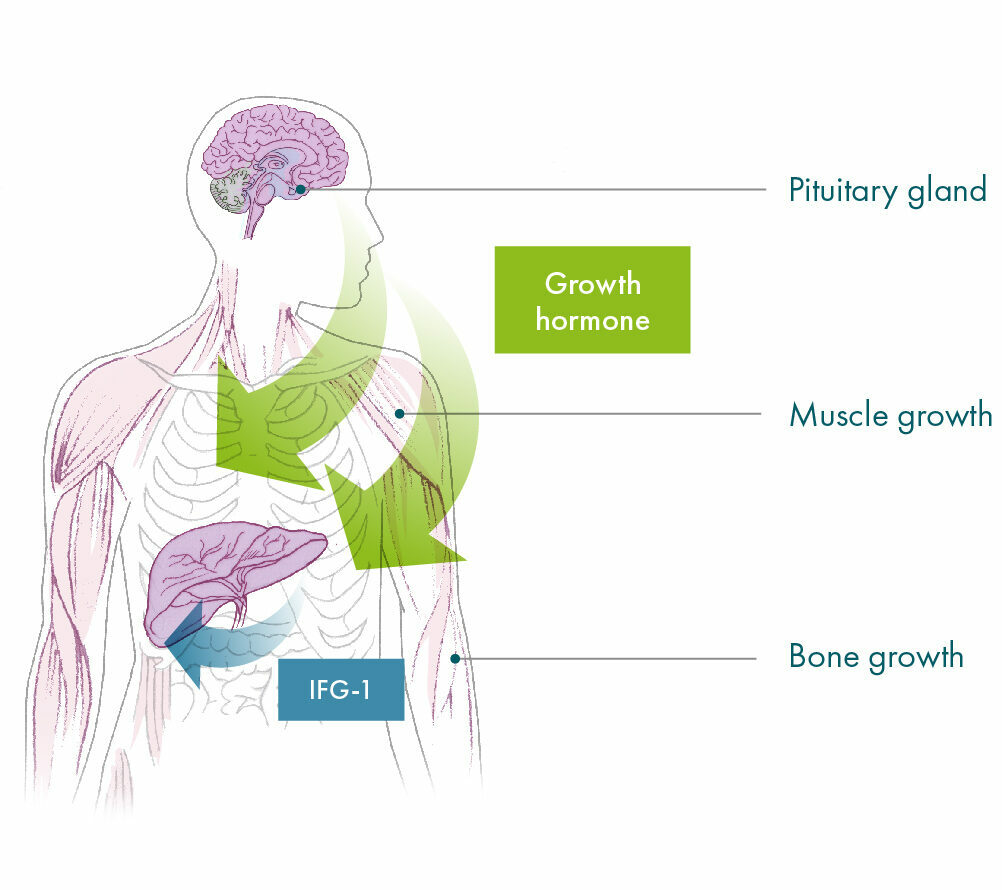Acromegaly is a rare disorder that occurs when your body produces too much growth hormone during adulthood.1
Acromegaly: from the Greek for extremities (acro) and great (megaly)
Growth hormone not only makes you grow taller, it also tells your muscles and organs to grow and affects how your body uses energy such as fat, protein and carbohydrates.2

The balance of growth hormone in your body is controlled by levels of other hormones in your blood and fluctuates throughout the day. Growth hormone can also be affected by stress, exercise, nutrition and sleep.2
In acromegaly, because too much growth hormone is being produced, your bones begin to grow, including those in your hands, feet and face.1 These changes can take a long time to appear, and to start with you might notice that your hands and feet are swollen or you’ve had to change your shoe or ring size.1 Tiredness and difficulty sleeping are also symptoms.1
REFERENCES:
-
NHS England. Acromegaly. Available at:https://www.nhs.uk/conditions/acromegaly/. Last accessed September 2020.
-
VIVO pathophysiology. Growth hormone (somatotropin). Available at:http://www.vivo.colostate.edu/hbooks/pathphys/endocrine/hypopit/gh.html. Last accessed September 2020.

